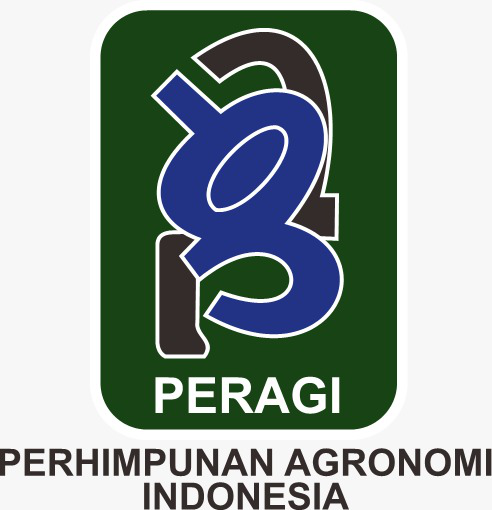Test The Effectiveness Botanical Insecticide of Citronella Leaf Extract (Cymbopogon nardus L.) to Control Stink Bug (Leptocorisa oratorius Fabricius) on Upland Rice
Abstract
Leptocorisa oratorius F. is one of the factors causing the decline in rice production. Appropriate and safe control measures for the environment need to be taken, considering that the use of chemical pesticides can have a negative impact on the environment. The treatment solution that can be used to deal with the stink bug pest (Leptocorisa oratorius F.) is by using plant-based pesticides which are known to be relatively safe because they do not pollute the environment and are easy to obtain. A plant that has the potential to be used as a botanical insectiside is citronella (Cymbopogon nardus L). The research aims to obtain a concentration of citronella leaf extract (Cymbopogon nardus L) that is effective in controlling the stink bug pest (Leptocorisa oratorius F.) on rice plants. The research was carried out at the Plant Pest Laboratory and Greenhouse, Faculty of Agriculture, Riau University, which was carried out for three months from Januari to Maret 2023. The research was carried out experimentally using a completely randomized design (CRD) consisting of five treatments and four replications so that 20 experimental units were obtained with various concentrations, namely 0 g.l-1 water, 25 g.l-1 water, 50 g.l-1 water, 75 g.l-1 water, 100 g.l-1 water. The results showed that the application of the stems and citronella leaves extract concentration of 75 gl-1 water is an effective concentration for controlling L. oratorius because it can cause a mortality of 85% with an initial time of death of 17.75 hours after application and a lethal time of 50 at 61.25 hours after application. The exact concentration of peper elder extract to control 50% of Leptocorisa oratorius is 4.31% or the equivalent of 43.1 g.l-1 water.
Downloads
References
Arimurti, A. R. R., & Kamila, D. (2017). Effectiveness of citronella essential oil (Cymbopogon nardus ) as a natural insecticide for American cockroach (Periplaneta americana). Journal of Muhammadiyah Medical Laboratory Technologist, 2(1), 55–60.
Balai Besar Pengkajian Teknologi Pertanian. (2015). Cumulative area of added attack (LTS) of plant disturbing organisms (OPT) at Cianjur PPOPT Agency. Cianjur.
Agricultural Training Center. (2021). Control of wicket sangit pests in rice plants. Tulang Bawang District Agriculture Office, Ministry of Agriculture, Lampung.
Riau Central Bureau of Statistics. (2023). Rice and rice production in Riau Province. Retrieved July 1, 2024, from https://riau.bps.go.id/statictable/2022/04/08/151/produksi--rice-in-riau-province-by-district-city-ton.html
Dadang, & Prijono, D. (2008). Vegetable insecticides. Bogor: Bogor Agricultural University Press.
Hasyim, A., Setiawati, W., Lukman, L., & Marhaeni, L. S. (2019). Evaluation of lethal concentration and lethal time of botanical insecticides against onion caterpillar (Spodoptera exigua) in the laboratory. Journal of Horticulture, 29(1), 69–80.
Hidana, R., & Novia, S. (2015). Effectiveness of lemongrass leaf extract (Cymbopogon nardus ) as antioviposition against Aedes aegypti mosquitoes. Journal of Health Bakti Tunas Husada, 13(1), 130–134.
Khanal, A. R., Koirala, K., & Regmi, M. (2016). Do financial constraints affect production efficiency in drought-prone areas? A case from Indonesian rice growers. The Southern Agricultural Economics Associations 2016 Annual Meeting, San Antonio, Texas, 1–23.
Lena, S., Sinaga, A., & Siahaan, F. (2020). Application of Tsukamoto fuzzy system in estimating rice production yield. Journal of Artificial Intelligence Application, 1(2), 126–130.
Mulyana. (2002). Extraction of alkaloid, quinone and saponin active compounds from amethyst plants as larvicides and insecticides against Aedes aegypti mosquitoes (Unpublished undergraduate thesis). Bogor Agricultural University, Bogor.
Mumba, A. S., & Rante, C. S. (2020). Pest control of Aphis gossypii on pepper plants (Capsicum annuum L.) using an extract of citronella (Cymbopogon nardus L.). Journal of Applied Agroecotechnology, 1(2), 35–38.
Munandar, A., & Halim, A. (2020). Proportional confidence interval. Bandung: Padjadjaran University.
Plantation Research and Development Center. (2012). Vegetable pesticides. Bogor: Ministry of Agriculture.
Rizal, D., Mutiara, D., & Lestari, I. (2010). Acute toxicity test of dry powder of soursop leaves (Annona muricata Linn.) against rice aphid (Sitophilus oryzae L.). Sainmatika, 7(2), 33–39.
Rusda, K., & Syahni, R. (2016). Food demand response to population growth in West Sumatra. Journal of Nagari Development, 1(2), 19–36.
Rustam, R., & Tarigan, A. C. (2021). Concentration test of citronella extract on mortality of armyworms. Journal of Agricultural Dynamics, 17(3), 199–208.
Salbiah, D., & Harefa, N. (2018). Test of several concentrations of jeringau rhizome extract (Acorus calamus L.) to control walang sangit (Leptocorisa acuta Thunberg) pests in upland rice plants (Oryza sativa L.). Journal of Agricultural Dynamics, 34(2), 129–138.
Yunianti, L. (2016). Effectiveness test of tuba root extract (Derris elliptica) to control armyworm pests (Spodoptera litura F.) on soybean plants (Undergraduate thesis). Riau University, Pekanbaru.
Copyright (c) 2025 Desita Salbiah, Eva Eva maryanti

This work is licensed under a Creative Commons Attribution 4.0 International License.
Authors who publish with Jurnal Agronomi Tanaman Tropika (JUATIKA) agree to the following terms:
Authors retain copyright and grant the Jurnal Agronomi Tanaman Tropika (JUATIKA) right of first publication with the work simultaneously licensed under a Creative Commons Attribution License (CC BY 4.0) that allows others to share (copy and redistribute the material in any medium or format) and adapt (remix, transform, and build upon the material for any purpose, even commercially) with an acknowledgment of the work's authorship and initial publication in Jurnal Agronomi Tanaman Tropika (JUATIKA).
Authors are able to enter into separate, additional contractual arrangements for the non-exclusive distribution of the journal's published version of the work (e.g., post it to an institutional repository or publish it in a book), with an acknowledgment of its initial publication in Jurnal Agronomi Tanaman Tropika (JUATIKA). Authors are permitted and encouraged to post their work online (e.g., in institutional repositories or on their website) prior to and during the submission process, as it can lead to productive exchanges, as well as earlier and greater citation of published work.







 More Information
More Information



